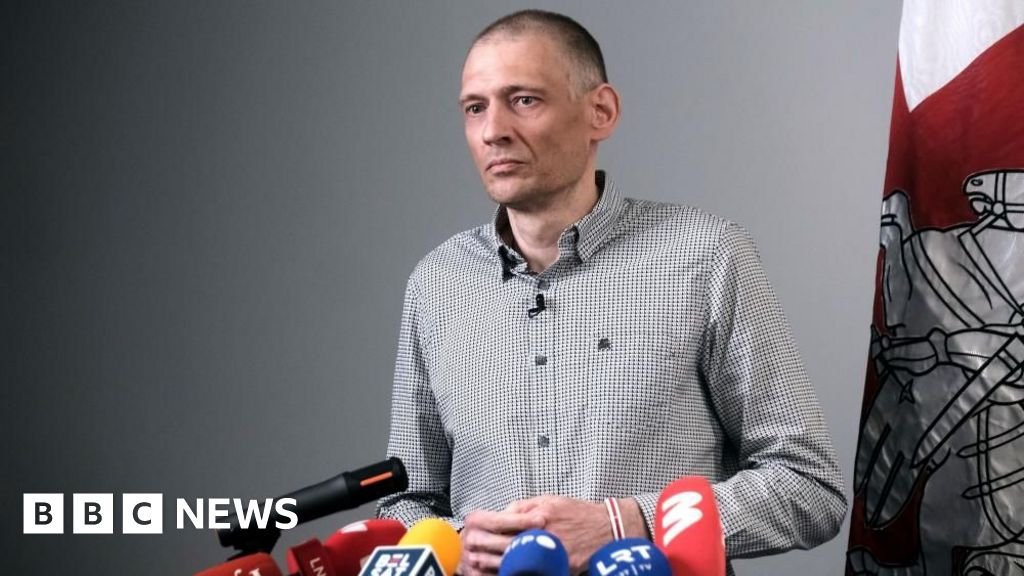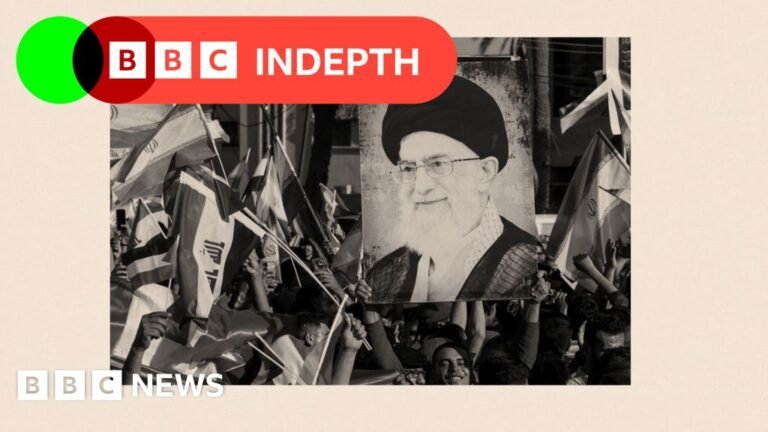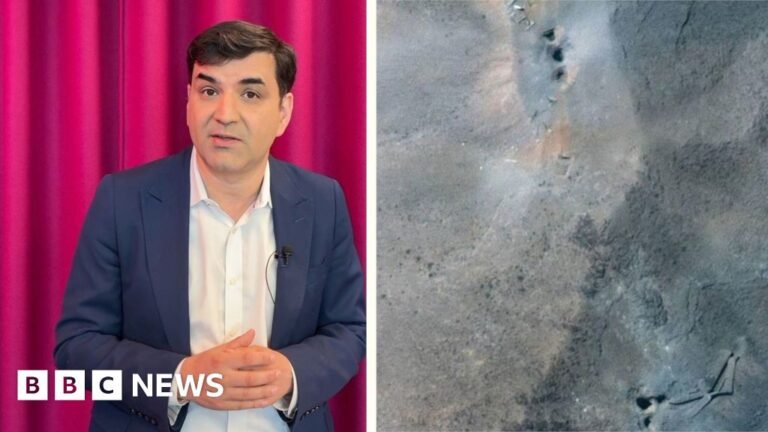
Sergei Tikhanovsky, the husband of Belarus’ opposition leader, has called on US President Donald Trump to “just say the word” and ask for all political prisoners in Belarus to be released.
The opposition activist was freed unexpectedly on Saturday and reunited with his wife in Lithuania. Thirteen other political prisoners were also released and forced into exile.
The move came as US special envoy Keith Kellogg travelled to Minsk, the Belarusian capital, and met the country’s authoritarian leader Alexander Lukashenko.
It was the first high-profile American visit in many years.
In an emotional press conference the day after his release, Tikhanovsky broke down in tears as he described his five years in solitary confinement and called for the freedom of more than 1,000 political prisoners still behind bars.
He was arrested in 2020 as he planned to run for president against Lukashenko in that summer’s elections.
He was jailed for 18 years in 2021 after a court convicted him of rallying mass protests against Lukashenko, among other politically motivated charges.
As a prominent opposition figure, Tikhanovsky said he had been held in what he described as the “strictest possible regime”, cut off from all contact with the outside world.
“You don’t even get letters, not a single call. For five years, I couldn’t even go to confession with a priest. No letters, no calls, no priest, no lawyer,” he said.
Then he began to sob.
“It’s a nightmare,” he said. “You ask about torture. Is that not torture? Murderers get to watch TV in prison, they have everything. But I didn’t even get letters. Or soap. Or a toothbrush.”
He has barely spoken to anyone but prison guards for years and on Sunday sometimes struggled for words.
“How can they do that? You [the regime] consider us criminals. But we have rights,” he said.
“It’s inhuman. It’s a nightmare. They have to stop this. We have to get people out.”
He called on the US president for more help.
“Trump has such power and such possibilities, that with one word he could free all political prisoners. I ask him to say that word now,” he added.
His wife, Svetlana Tikhanovskaya, wiped away her own tears as he spoke. Earlier she had called him her “personal hero”.
She also described how their daughter hadn’t recognised her father because he had changed so much in prison and lost a lot of weight.
She said Lukashenko had received only one thing from the US administration in return for the prisoner release on Saturday – the visit from US envoy Kellogg.
He can present that as a diplomatic breakthrough after years of political isolation for the repression of domestic dissent and for his support for Russia’s full-scale invasion of Ukraine.
But Tikhanovsky said what Belarus wants most is the removal of US sanctions.
Before his arrest, Tikhanovsky was a colourful, outspoken figure who had a big following in Belarus on social media.
The video blogger and activist used to call on people to “stop the cockroach”, referring to Lukashenko, and would tour the country to meet people in town squares and villages to hear their concerns.
After his arrest in 2020, his wife stepped in to run for president in his place in the August elections.
When Lukashenko declared another landslide win, her supporters flooded the streets in the biggest protests Belarus has ever known.
They were ruthlessly crushed, and Tikhanovskaya was forced to flee the country.
“The leader of the opposition is Svetlana Tikhanovskaya, my wife, and I don’t make any claim to anything,” Tikhanovsky clarified on Sunday, insisting that he had no intention of taking over leadership of the Belarusian opposition abroad.
Earlier, he had raised a fist of defiance.
“I want to say to all Belarusians – if you were waiting for a symbol, this is it,” he said, urging them to stand up to Lukashenko.
He said he regretted nothing he had done – despite the treatment he received as a result.
But he added his release from prison had saved his life, because he would not have survived his full sentence behind bars in such conditions.
Hundreds of thousands of Belarusians are estimated to have left their country since the brutal crackdown on widespread opposition protests in 2020.
Tens of thousands of people have been arrested in the country in the past five years for political reasons, according to human rights group Viasna.




